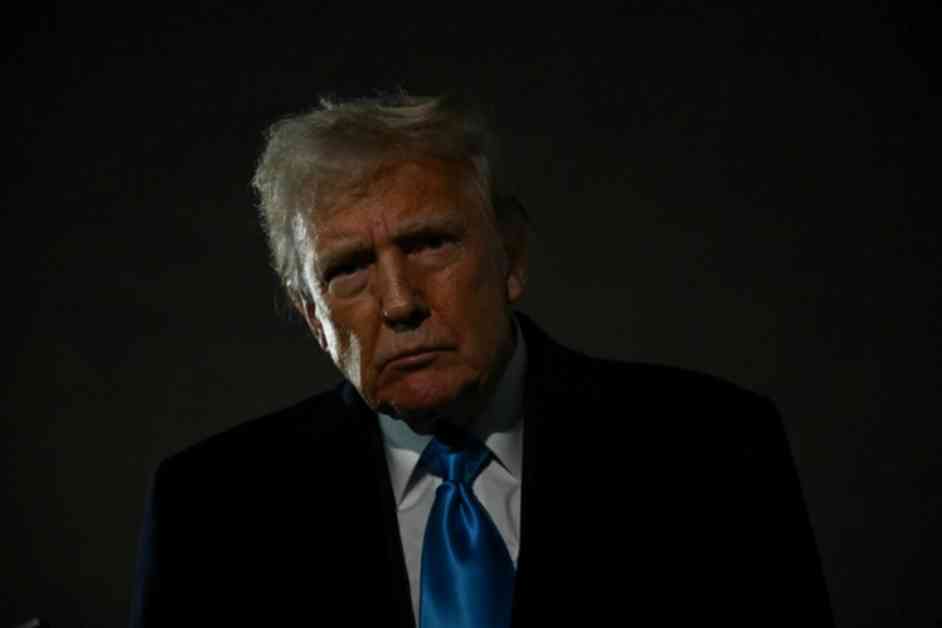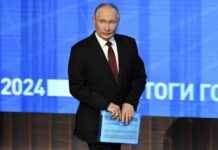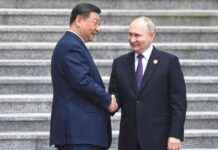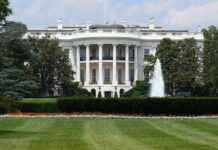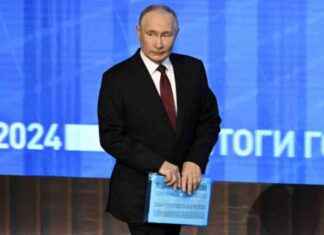Trump Initiates Talks with Russia Regarding Ukraine War
In a recent development, US President Donald Trump confirmed that discussions have commenced within his administration with Russian officials to seek an end to the ongoing war in Ukraine. This marks the first instance since his inauguration on Jan. 20 that President Trump has acknowledged engaging in dialogue with the Kremlin about this crucial international issue. The talks have been described as “very serious,” although specific details about the participants from the administration and any outcomes achieved have not been disclosed at this time.
Trump’s Remarks on the Ukraine War
During an Oval Office exchange reported by the Associated Press, President Trump expressed optimism about the potential outcomes of these discussions. He emphasized the significance of the dialogue, stating, “We want to end that war. That war would have not started if I was president.” However, when questioned about direct communication with Russian President Vladimir Putin, Trump chose not to provide a definite response, indicating the sensitivity and complexity of the diplomatic conversations.
Ukrainian Concerns and International Dynamics
The prospect of exclusive bilateral talks between the United States and Russia on the Ukraine conflict has raised concerns among Ukrainian officials, including President Volodymyr Zelensky. In a recent interview, President Zelensky emphasized the importance of Ukraine’s participation in any negotiations related to the conflict, highlighting the potential risks of excluding key stakeholders from the peace process. This sentiment underscores the delicate balance of power and interests at play in the region.
Expert Insights and Geopolitical Implications
As the situation unfolds, experts and observers are closely monitoring the evolving dynamics surrounding the Ukraine war and the diplomatic engagements between the US, Russia, and Ukraine. Katie Livingstone, a seasoned journalist with extensive experience covering conflicts, including the war in Ukraine, offers valuable insights into the implications of these recent developments. Having reported on the ground and witnessed the human impact of geopolitical decisions, Livingstone’s perspective sheds light on the complexities of international relations and the real-world consequences of policy decisions.
Trump’s Tariff Tactics and Global Response
In addition to the discussions on the Ukraine war, President Trump has recently employed tariffs as a strategic tool to advance his administration’s policy objectives. His administration’s decision to impose tariffs on key trading partners, including Canada, Mexico, and China, has sparked international reactions and raised concerns about potential trade conflicts. The swift escalation of tariff measures underscores the US administration’s commitment to prioritizing domestic interests and leveraging economic leverage in diplomatic negotiations.
Implications for International Relations and Trade
The imposition of tariffs on imported goods from major trading partners has significant implications for global trade and economic relations. Prime Minister Justin Trudeau’s announcement of matching tariffs by Canada, coupled with Mexico’s response to the punitive measures, signals a potential escalation in trade tensions. China’s plan to challenge the tariffs through legal avenues further complicates the international trade landscape, highlighting the interconnectedness of economic policies and geopolitical strategies.
Navigating the Complexities of Diplomacy and Commerce
As the US administration navigates the complexities of diplomacy, conflict resolution, and trade negotiations, the interplay between political decisions and economic consequences becomes increasingly apparent. The strategic deployment of tariffs as a bargaining chip underscores the multifaceted nature of international relations and the intricate dance of power dynamics on the global stage. These developments underscore the need for nuanced approaches to address complex challenges and promote stability in an interconnected world.
In conclusion, the evolving discussions between the US, Russia, and Ukraine on the Ukraine war, coupled with the strategic use of tariffs in trade disputes, reflect the intricate web of relationships and interests shaping contemporary geopolitics. As stakeholders engage in dialogue and negotiations to address pressing issues, the impact of diplomatic decisions reverberates far beyond the confines of official statements and policy documents. By understanding the multifaceted nature of international relations, we can navigate the complexities of global challenges and work towards sustainable solutions that promote peace, prosperity, and cooperation on the world stage.
